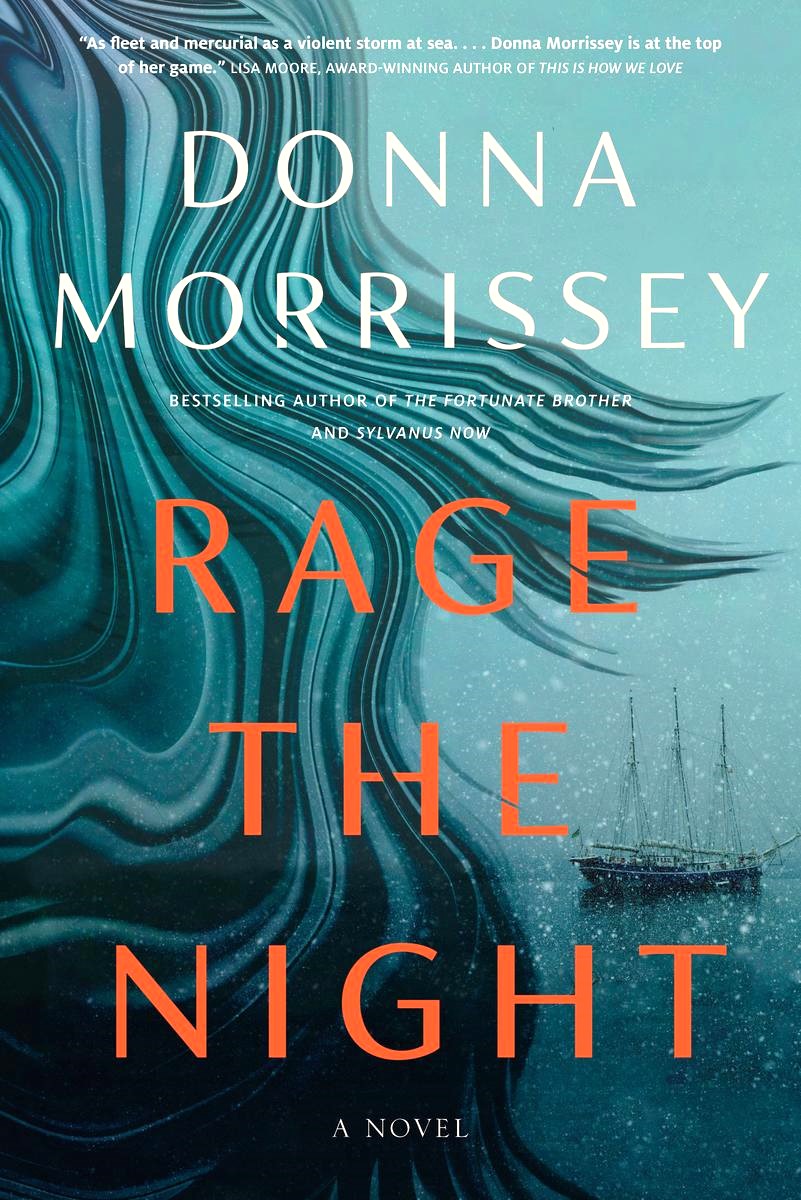
It has been a little over two years since Celtic Life International last spoke with Canadian author Donna Morrissey. During that time, the award-winning scribe has kept her pedal to the metal as a driving force in Canadian literature.
“Oh, I’ve been busy,” she laughs over the phone from her home in Halifax, Nova Scotia.
Busy might be an understatement. Hot on the heels of her very successful memoir, Pluck (2021), Morrissey wasted no time getting back to work. Her latest effort – a novel titled Rage By Night – is one of the most significant creative undertakings that she has taken on to date.
Unlike some of her previous works of fiction, which were influenced from her own family history, Rage By Night tells the tale of the 1914 Newfoundland Sealing Disaster when two separate but concurrent tragedies took place at sea during a fierce spring blizzard. Men aboard the SS Southern Cross and the SS Newfoundland were left stranded in ice, with many never making it home.
Morrissey explains that finding a point of entry into this momentous moment in Newfoundland/Labrador’s history was no easy task.
“It was a book I wanted to write when I first started writing – before I even knew what writing was really – but I didn’t have a clue. I had no idea what I was doing, and it felt so daunting. I simply put it on the back burner for a long time. Now, seven books later, it felt like the time was right.”
She notes that piecing together the new narrative felt like walking on sacred ground.
“It is a story that has never been fictionalized, and it is still a story that is very sensitive. It was such a cruel, cruel tragedy. I was a little unsure of going into it as fiction, but these stories find you. It wanted to be brought out into the world.”
Morrissey was pushed into action after reading Gary Collins’ non-fiction account of the SS Newfoundland, Left to Die. In that book’s prologue, Collins describes a conversation with one of the tragedy’s last survivors.

“He said, ‘Write our stories, don’t let our story die,’” Morrissey recites. “That gave me permission to go ahead and write this story.”
Around the same time, two other stories, recounted by her father, piqued her interest.
“These stories were circling in my mind and were equally haunting.”
The first story took place out on the ice, late at night; with the sudden appearance of a “weather light” – an atmospheric phenomenon where lights seem to stretch from soil to sky. The second story involves her uncle who, after losing his mother, was placed into an orphanage; something, says Morrissey, that you simply didn’t do in the area at that time.
“For some reason, these three stories just circled around – like spinning plates in my head…”
“And then one day, I was in a graveyard, and I saw a headstone of a woman and child under the one headstone, but there wasn’t a name. I came home with that image in the back of my mind, and the story unfolded soon after.”
Bringing the three pieces of inspiration together took time. As the author kept writing, however, the story revealed its main character: Rowan, a twenty-year-old man who believes himself an orphan and is eager to uncover the truths from his past.
The hard work paid off. The new novel is by turns, both intimate and haunting and is a beautiful reflection on the journey we are invited to take in order to truly understand ourselves.
“The story is about Rowan and his search for identity, and that even in these dire moments of hell, there is a light that burns in all of us – and that light is waiting to shine, waiting to be kindled.”
Although it is still early days, the response from first readers has been overwhelmingly positive.
Never one to sit still for too long, however, Morrissey is already working on her next project – a return, of sorts, to her roots.
“It is a memoir of my father, my brothers, and my sisters and their stories. I am not quite sure yet what that will shape itself to be, but it will be a different kettle of fish for sure.”




















Leave a Comment